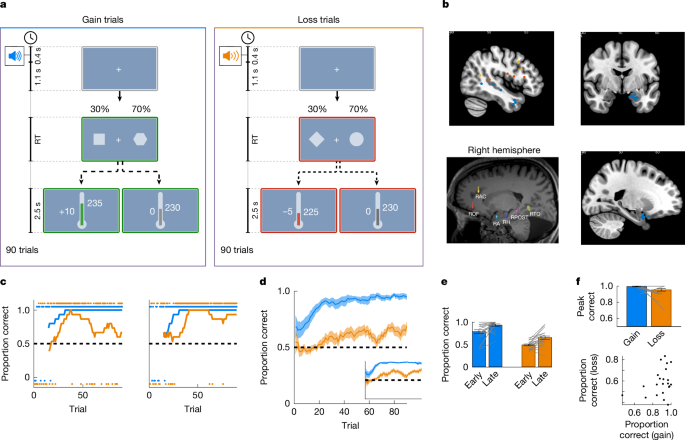
"To cope in uncertain environments, animals must balance their actions between using current resources and searching for new ones1. This exploration-exploitation dilemma has been studied extensively in paradigms involving positive outcomes, and neural correlates have been identified in frontal cortices and subcortical structures2,3,4,5,6,7,8,9,10,11, including the amygdala12. Importantly, exploration is just as essential for survival or well-being when trying to avoid negative outcomes, yet we do not know whether the single-neuron mechanisms that drive exploration are shared across positive and negative environments."
"We show that neurons of the amygdala and temporal cortex modulate their activity before a decision to explore in both loss and gain. Moreover, we find that humans exhibit more exploration when trying to avoid losses, and that an increase in the levels of noise in amygdala neurons contributes to this behaviour. Overall, we report that human exploration is driven by two distinct neural mechanisms, a valence-independent rate signal and a valence-dependent global noise signal."
Human participants engaged in a probabilistic learning task with intermixed loss and gain trials while single-neuron activity was recorded. Neurons in the amygdala and temporal cortex modulated activity prior to decisions to explore in both loss and gain contexts. Participants showed greater exploration when attempting to avoid losses compared with pursuing gains. Increased levels of noise in amygdala neurons were linked to higher exploration during loss avoidance. Two distinct neural mechanisms underlie exploration: a valence-independent rate signal and a valence-dependent global noise signal. Heightened amygdala activity associated with mood disorders may relate to elevated exploration rates that produce maladaptive behaviors.
Read at Nature
Unable to calculate read time
Collection
[
|
...
]